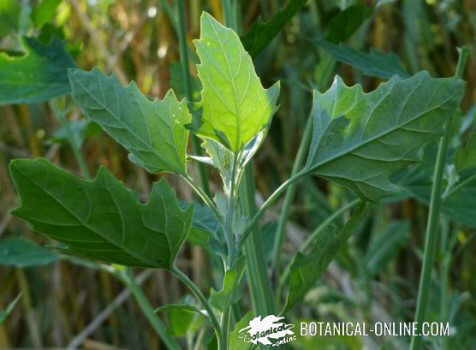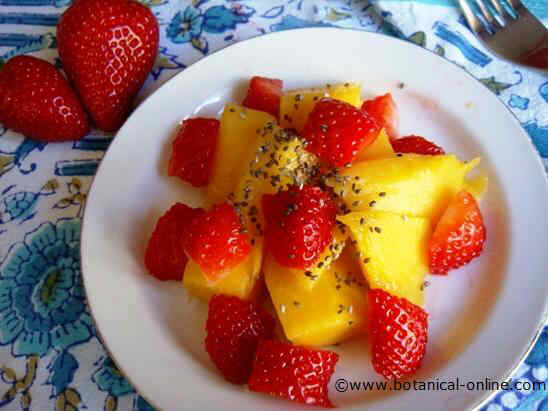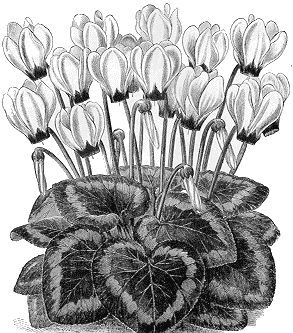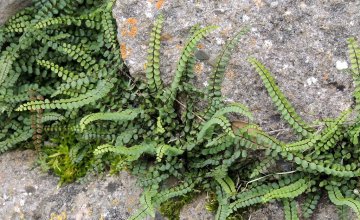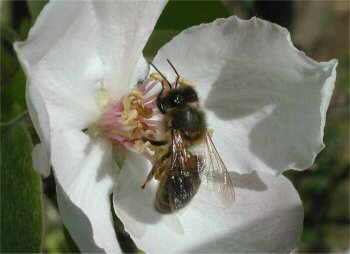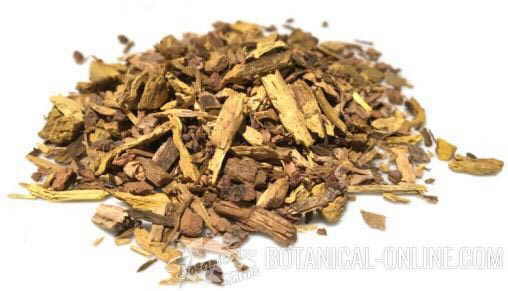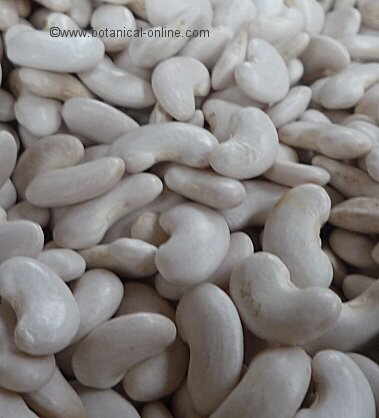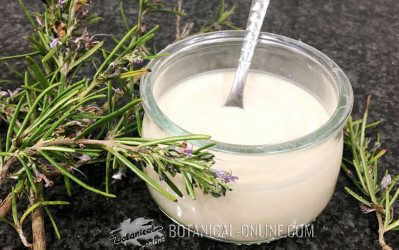Contents
MAIN TROPICAL FRUITS – LIST OF TROPICAL FRUITS
(From E -Z)
Guava:guava contains more than 3 times the antioxidants of orange or lemon, and is one of the most powerful antioxidant fruits in the world. |  |
Jackfruit:It provides energy for its content on carbohydrates and vitamins. Carbohydrates are easily assimilated by the body, and it also contains high doses of niacin and thiamine, vitamin nutrition that allow nerve cells and muscle fiber | 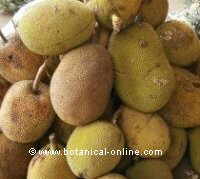 |
Kiwi:Kiwifruits are among the fruits with more vitamin C (98 mg per 100 g weight) the are really only surpassed by guavas -183 mg- and blackcurrants – 191 mg. Kiwis have more vitamin C than lemons (53 mg) and oranges (48 mg) | 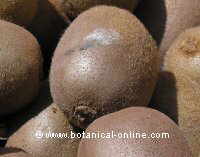 |
Kumquat:Because it contains pectin, vitamin C and essential oils, it has antitussive, anti-inflammatory and antibacterial properties that make it very suitable for treating respiratory conditions. | 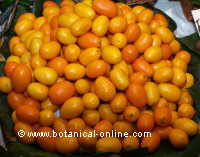 |
Lychee:Lychee is a fruit rich in vitamin C, recommended healthy diet throughout. In addition, the fruit is rich in polyphenols with antioxidant properties. | 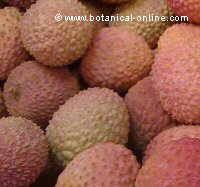 |
Mango:For its wealth in acids (malic, palmitic, myristic and p-coumaric acid), vitamin C and, especially, also for its high content of vitamin A, mango fruit is a good antioxidant. It can neutralize free radicals and provide your body with an extra defensive power against degradation of the cells. | 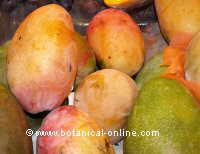 |
Melon:Apart from being rich in vitamin A and vitamin C, we must not forget the wealth of melons in minerals, especially iron and manganese. The first one is necessary to prevent anemia; the second is required for the formation of bones, nervous system and to take advantage of proteins. | 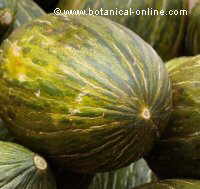 |
Papaya:Papaya, besides being very vitaminizing (mainly rich in vitamin C and vitamin A), it is highly digestive and an interesting fruit for old people who often have digestive problems digesting too much fatty food. |  |
Persimmon:Persimmons are grown primarily for its fruits, that are especially rich in vitamin A, vitamin C, lycopene and fiber. | 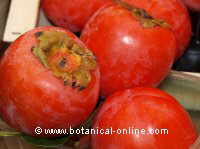 |
Pineapple:In addition to its anticoagulant properties, bromelain of pineapple has the power to “digest” the proteins so it will be helpful in the process of digestion. A good chunk of pineapple after finishing allows us to digest food better, helps the stomach to do its job and to feel less full more quickly. |  |
Pitahaya:Pitahaya or dragon fruit is a moisturizing and food of high nutritional value, it gives us natural sugars, fiber, niacin and vitamin C. | 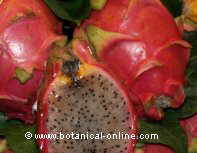 |
Raspberry:Raspberries are very rich in vitamin C. A cup of raspberries provides 88% of the daily needs of this vitamin. We have to emphasize the antioxidant function of vitamin C, able to neutralize the negative influence of free radicals. Eating raspberries will help detoxify the body and prevent many degenerative diseases that can be caused by the accumulation of these toxins in the body. |  |
Passion fruit:It fundamentally contains vitamin A, Vitamin B and Vitamin C and a great amount of niacin that is very appropriate for the treatment of the cholesterol and the perfect state of the nerves, preventing many anomalies such anxiety, nervousness, stress, depression, etc. | 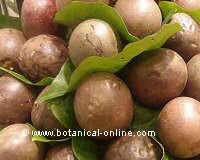 |
Watermelon:Watermelons, like melons, are very rich in vitamin A, in the form of carotenes. Watermelon is even richer than melon. The main carotene in watermelon is lycopene, which is the dyeing substance that gives watermelon its peculiar red or pink color. | 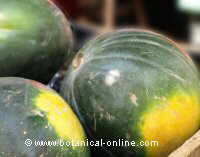 |
Go to the previous tropical fruits (A-D)
![]() More information on fruits.
More information on fruits.

